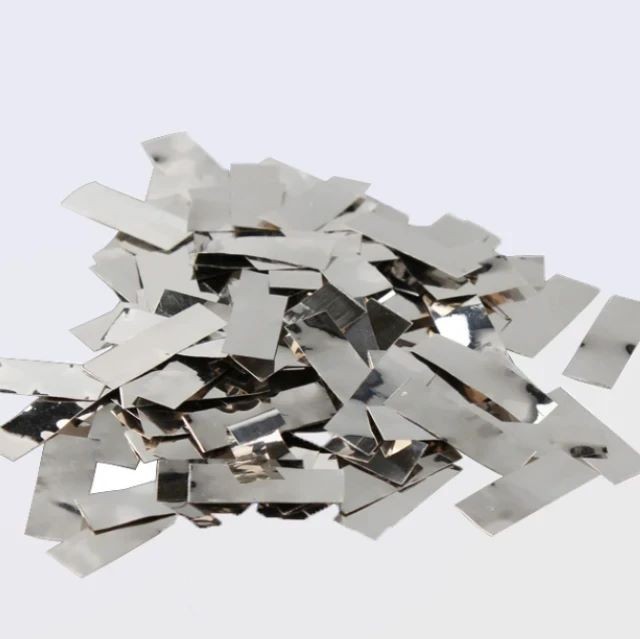
battery material
Platinum Sheet Electrode for Battery Lab Applications
Item Number : BC-09
Price varies based on specs and customizations
- Material
- Platinum sheet
- Specification
- See the form
Shipping:
Contact us to get shipping details Enjoy On-time Dispatch Guarantee.
Why Choose Us
Easy ordering process, quality products, and dedicated support for your business success.
Application
Platinum is a platinum group metal with a melting point of 1769°C and is a refractory metal. It is soft and can be forged, rolled and drawn into a variety of shapes, including rod, wire, sheet and tube. Exhibiting excellent stability at high temperatures, maintaining oxidation resistance up to the melting point, platinum has minimal reactivity with most chemical reagents, except aqua regia. And its alloys have strong corrosion resistance and are suitable for use in harsh environments. It has stable resistance, temperature coefficient of resistance and good thermoelectric performance.
Application fields:
- Electrical instrumentation: Platinum is widely used in the electrical instrumentation industry because of its stable electrical properties.
- Precision alloys: used to produce precision alloys.
- Catalysts: Platinum and its alloys are widely used as catalysts, especially for gaseous reactions such as hydrogenation or dehydrogenation.
- Jewelry: Platinum is used in jewelry because of its desirable properties and lustrous appearance.
Detail & Parts
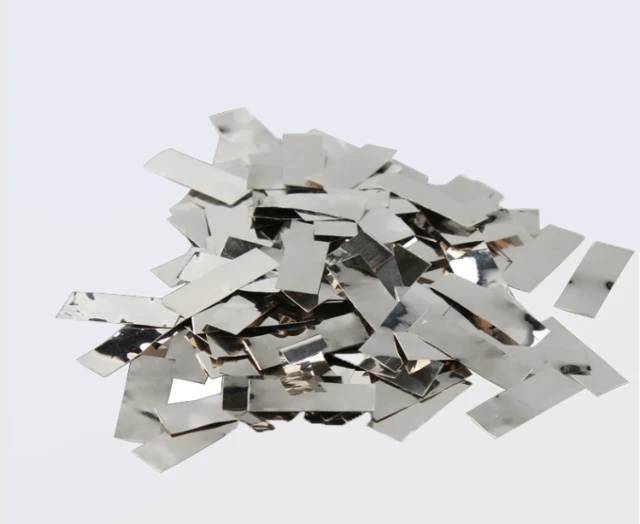
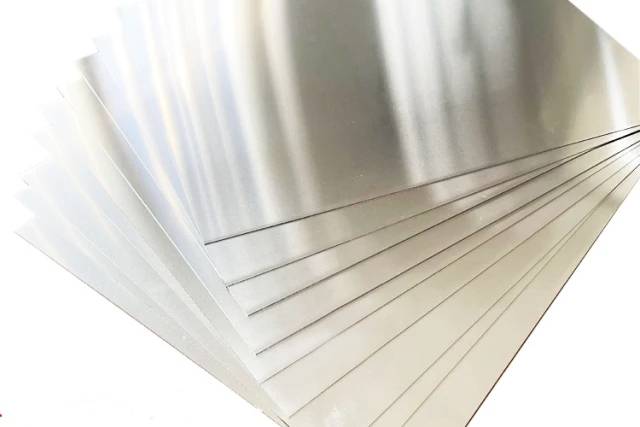
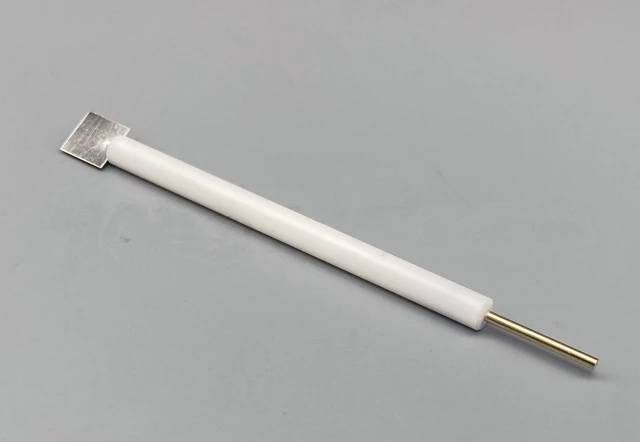
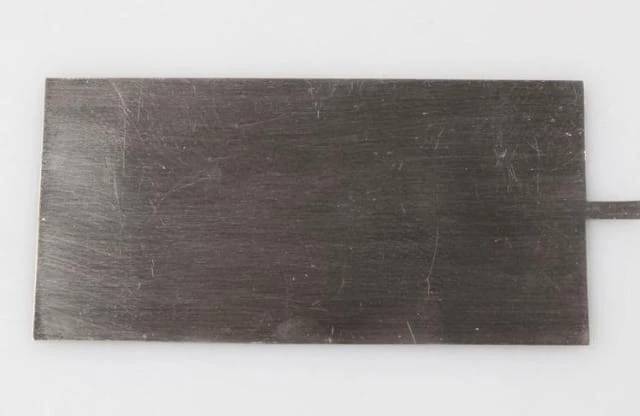
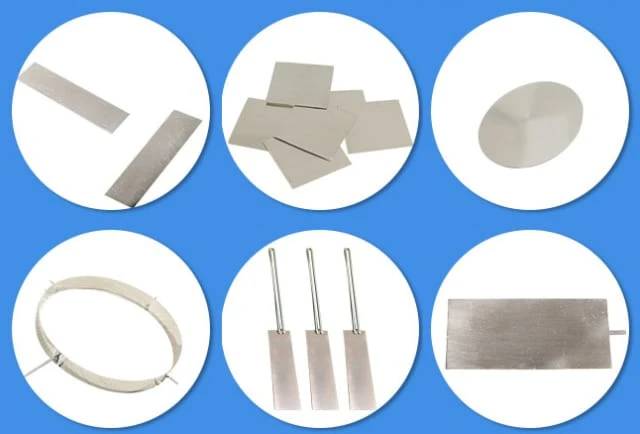
Technical specifications
| 0.1*5*5mm | 0.5*10*10mm | 0.3*10*20mm | 0.5*10*30mm | 0.3*20*20mm |
| 0.2*5*5mm | 0.1*10*15mm | 0.5*10*20mm | 0.1*15*15mm | 0.5*20*20mm |
| 0.1*10*10mm | 0.2*10*15mm | 0.1*10*30mm | 0.2*15*15mm | 0.1*30*30mm |
| 0.2*10*10mm | 0.1*10*20mm | 0.2*10*30mm | 0.1*20*20mm | 0.2*30*30mm |
| 0.3*10*10mm | 0.2*10*20mm | 0.3*10*30mm | 0.2*20*20mm |
The products we show are available in different sizes and custom sizes are available on request.
Advantages
- Corrosion Resistance: The corrosion resistance properties of platinum make it suitable for a variety of applications in harsh environments.
- High Melting Point: Platinum's high melting point allows it to withstand high temperature operations.
- Good Elongation: Platinum has good elongation, enabling it to be formed into various shapes.
- Stable structure: Platinum can maintain its stability and structure in different environments, enhancing its reliability.
- Controllability: The performance of the platinum electrode can be controlled by adjusting its shape, size, and thickness.
- Reproducibility: Platinum electrodes can be reused with simple cleaning and polishing without loss of their electrochemical performance.
- High Response Speed and Sensitivity: Platinum electrodes have fast response and high sensitivity to potential changes, resulting in a pronounced current response.
- High steady-state current density: Compared with other materials, platinum electrodes have a higher steady-state current density, which improves the efficiency of electrochemical reactions.
- Good corrosion resistance and high temperature resistance: Platinum electrodes can withstand a wide temperature and pH range, as well as high current density and voltage.
Trusted by Industry Leaders

FAQ
What Is An Electrode In Electrochemistry?
What Is The Function Of Auxiliary Electrode?
What Are The 3 Electrodes In Electrochemistry?
What Is The Difference Between Auxiliary And Reference Electrode?
What Are The Different Types Of Electrochemical Electrodes?
What Materials Are Commonly Used For Auxiliary Electrodes?
What Materials Are Commonly Used For Electrochemical Electrodes?
How Do Auxiliary Electrodes Affect The Performance Of An Electrochemical Cell?
What Factors Should Be Considered When Selecting An Electrochemical Electrode?
Why Are Auxiliary Electrodes Necessary In Electrochemical Systems?
How Can Electrochemical Electrodes Be Used In Various Applications?
Are There Any Limitations Or Considerations When Using Auxiliary Electrodes?
4.8 / 5
Highly durable and easily integrated into various experimental setups.
4.9 / 5
Excellent stability and reproducibility, a must-have for electrochemical research.
4.7 / 5
The fast delivery and secure packaging ensured the product arrived in perfect condition.
4.6 / 5
Great value for money, the quality of the electrode is exceptional.
5.0 / 5
The product's durability is impressive, withstanding rigorous experimental conditions.
4.8 / 5
The technological advancements incorporated in this electrode make my research more efficient.
4.9 / 5
The product's high-quality construction ensures accurate and reliable results.
4.7 / 5
The electrode's exceptional performance enhances the precision of my electrochemical measurements.
4.6 / 5
The product arrived promptly and in excellent condition, meeting all my expectations.
5.0 / 5
The electrode's construction allows for easy integration into existing experimental setups.
4.8 / 5
The product's durability and corrosion resistance make it ideal for long-term experiments.
4.9 / 5
The electrode's versatility makes it suitable for a wide range of electrochemical applications.
4.7 / 5
The product's high-quality construction ensures accurate and reproducible results.
REQUEST A QUOTE
Our professional team will reply to you within one business day. Please feel free to contact us!
Related Products

Platinum Sheet Electrode for Laboratory and Industrial Applications
Elevate your experiments with our Platinum Sheet Electrode. Crafted with quality materials, our safe and durable models can be tailored to fit your needs.

Rotating Platinum Disk Electrode for Electrochemical Applications
Upgrade your electrochemical experiments with our Platinum Disc Electrode. High-quality and reliable for accurate results.

High Purity Gold Platinum Copper Iron Metal Sheets
Elevate your experiments with our high-purity sheet metal. Gold, platinum, copper, iron, and more. Perfect for electrochemistry and other fields.
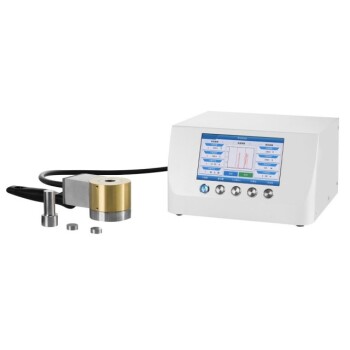
Cylindrical Lab Electric Heating Press Mold for Laboratory Applications
Efficiently prepare samples with Cylindrical Lab Electric Heating Press Mold. Fast heating, high temp & easy operation. Custom sizes available. Perfect for battery, ceramic & biochemical research.
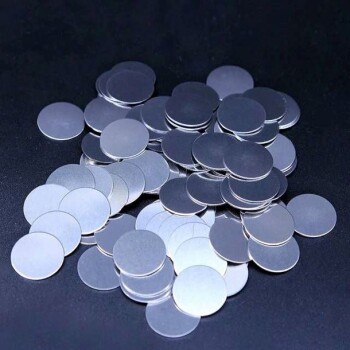
Button Battery Case Gasket for Battery Lab Applications
The gasket prevents the deformation of the internal material, and the spring sheet is conducive to the tight contact inside the battery to prevent loosening.

High Purity Zinc Foil for Battery Lab Applications
There are very few harmful impurities in the chemical composition of zinc foil, and the surface of the product is straight and smooth; it has good comprehensive properties, processability, electroplating colorability, oxidation resistance and corrosion resistance, etc.
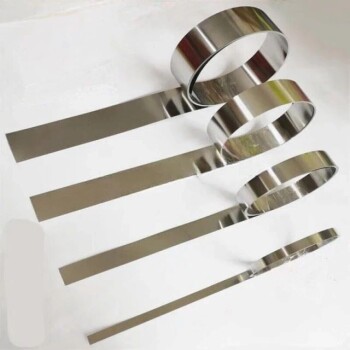
Battery Lab Equipment 304 Stainless Steel Strip Foil 20um Thick for Battery Test
304 is a versatile stainless steel, which is widely used in the production of equipment and parts that require good overall performance (corrosion resistance and formability).
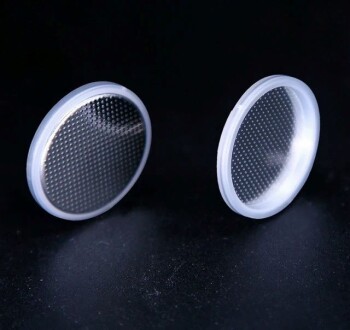
Button Battery Case for Battery Lab Applications
Button batteries are also known as micro batteries. It looks like a small button-shaped battery. Usually larger in diameter and thinner in thickness.
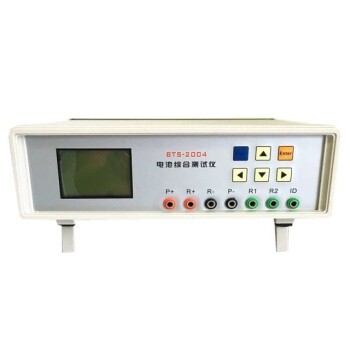
Battery Lab Equipment Battery Capacity and Comprehensive Tester
The scope of application of the battery comprehensive tester can be tested: 18650 and other cylindrical, square lithium batteries, polymer batteries, nickel-cadmium batteries, nickel-metal hydride batteries, lead-acid batteries, etc.

Hydrophilic Carbon Paper TGPH060 for Battery Lab Applications
Toray carbon paper is a porous C/C composite material product (composite material of carbon fiber and carbon) that has undergone high-temperature heat treatment.
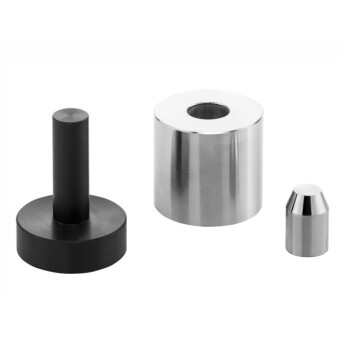
Button Battery Tablet Press Sealing Mold for Lab Use
The sealing die is essential for assembling button batteries, ensuring components like the anode, cathode, and electrolyte are securely enclosed.

Rotary Tube Furnace Split Multi Heating Zone Rotating Tube Furnace
Multi zone rotary furnace for high-precision temperature control with 2-8 independent heating zones. Ideal for lithium ion battery electrode materials and high-temperature reactions. Can work under vacuum and controlled atmosphere.

RRDE rotating disk (ring disk) electrode / compatible with PINE, Japanese ALS, Swiss Metrohm glassy carbon platinum
Elevate your electrochemical research with our Rotating Disk and Ring Electrodes. Corrosion resistant and customizable to your specific needs, with complete specifications.
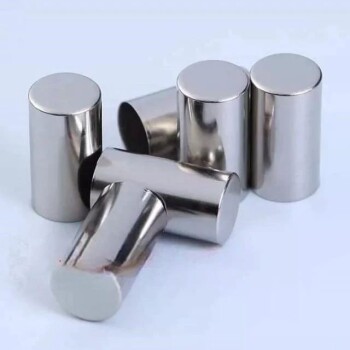
Cylindrical Battery Steel Case for Battery Lab
Lithium-ion battery casing suppresses battery polarization, reduces thermal effects, and improves rate performance.
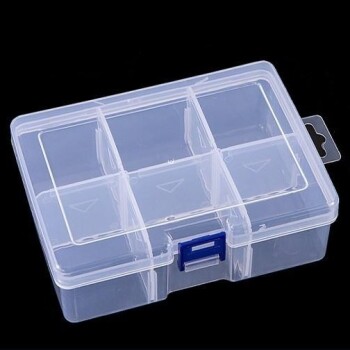
Button Battery Storage Box for Battery Lab
Button-type battery storage box, detachable, high-quality PP environmental protection material; suitable for small objects/chemicals, etc., thickened, compressive, durable, and available in a variety of styles.
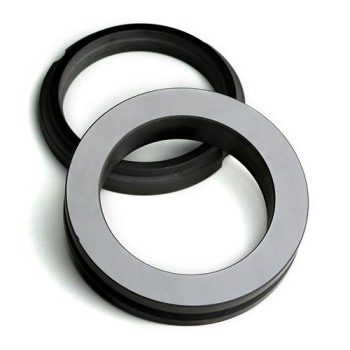
Custom CVD Diamond Coating for Lab Applications
CVD Diamond Coating: Superior Thermal Conductivity, Crystal Quality, and Adhesion for Cutting Tools, Friction, and Acoustic Applications
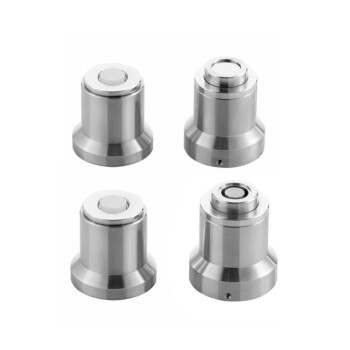
Button Battery Disassembly and Sealing Mold for Lab Use
The simple sealing and disassembly mold can be directly used on ordinary tablet presses, which can save costs, is convenient and fast, and can be used to encapsulate and disassemble button batteries. Other specifications can be customized.

Laboratory Hydraulic Press Lab Pellet Press for Button Battery
Efficiently prepare samples with our 2T Button Battery Press. Ideal for material research labs and small-scale production. Small footprint, lightweight, and vacuum-compatible.
Related Articles

Electrode Materials for Rotating Ring-Disk Electrodes
Rotating ring-disk electrodes (RRDEs) are used in a wide range of applications, from fuel cells to sensors, and they require careful selection of electrode materials for optimal performance.

Reference Electrodes: Calomel, Silver Chloride, and Mercury Sulfate - A Comprehensive Guide
Explore the world of reference electrodes, including calomel, silver chloride, and mercury sulfate. Understand their construction, principles, and applications in electrochemical measurements.

Electrolytes and Electrochemical Electrodes
Electrolytes and electrodes play an essential role in electrochemistry. Electrolytes are substances that conduct electricity when dissolved in water or melted.

Applications of Electrolytic Cells in Purification and Electroplating
Electrolytic cells are chemical cells that use electricity to generate a non-spontaneous redox reaction. These cells are used in various electrochemical processes such as electrolysis and electroplating.

Understanding Electrodeposition with Electrochemical Electrodes
Electrodeposition is a process of depositing a metal or a non-metallic material onto a surface by applying an electric current.

Electrode Fixture Guide: Types, Design, and Applications
Discover the comprehensive guide to electrode fixtures, covering various types, design considerations, and their indispensable role in industries like electroplating, welding, and electrochemical cells.

AgAgCl Reference Electrode Working Principle and Applications
Ag/AgCl reference electrode is a widely used reference electrode due to its stable potential and long-term stability.

Understanding Quartz Electrolytic Cells: Applications, Mechanisms, and Advantages
Explore the detailed workings, applications, and benefits of quartz electrolytic cells in various industries. Learn how these cells facilitate precise chemical reactions and their role in high-purity metal production.

How to Choose the Right Reference Electrode for Your Application
When it comes to measuring the electrical potential of a solution accurately, a reference electrode is an essential tool in the laboratory. It provides a stable and consistent reference point for other electrodes to measure against, ensuring accurate and reliable results.

Electrochemical Electrodes in Chemical Analysis
Electrochemical electrodes are essential tools used in many chemical analysis techniques and experiments. These electrodes are devices that allow us to measure the electrical potential difference in a chemical reaction.

Understanding Electrodes and Electrochemical Cells
An electrode is a point where current enters and leaves the electrolyte. It is a conductor used to make a junction with a nonmetallic part of a circuit. Electrodes can be made of materials such as gold, platinum, carbon, graphite, or metal. They serve as the surface for oxidation-reduction reactions in electrochemical cells. There are different types of electrodes, including anode and cathode.

How to Choose the Right Electrochemical Electrode
The choice of electrode material can have a significant impact on the performance of the electrochemical system.